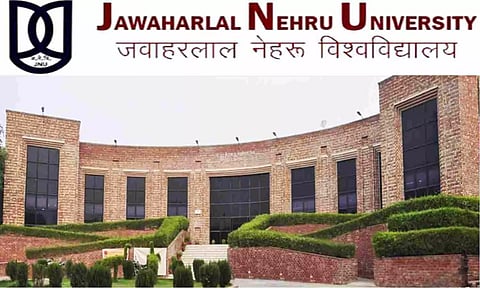

CHENNAI: The Centre’s assault on Jawaharlal University (JNU) is remarkable. Ever since it used doctored videos to round up protesting students in February 2016, it has shown aggression towards the central university. It’s the kind of irrational hostility under-siege nationalist governments usually have for the Fifth Column. This springs from a covetousness lodged deep within the BJP and its brood of mediocre affiliates: Being incapable of anything like true scholarship to secure a toehold in either the sciences or the humanities, they have an unrequited lust for intellectual eminence and therefore end up envying institutions of higher learning for the place they have in the nation’s mindspace. This expresses itself as rage.
Last week, the JNU Teachers Association captured the angst-fuelled wrecking of the university in a report titled ‘JNU: State of the University’. The report records the systematic manner in which JNU’s autonomy is being burrowed into, with grave implications for academic standards and the diversity of the student profile. The university administration has altered JNU’s statutory structures and processes to allow infiltration by favourites. The longstanding and non-discretionary system of rotation by order of seniority in the appointment of chairpersons and deans has been done away with to shut out inconvenient academics from influential positions. Another tactic has been to bypass or scuttle collegial committee proceedings where decisions would be debated.
This enables functionaries to take arbitrary decisions, reducing the committees to rubber stamp status. Taking the ruse of Covid, faculty and executive committee meetings were moved online, and although the pandemic has long passed, proceedings of the Academic Council and the Executive Council continue to take place online. Online meetings allow admin to prevent any meaningful discussion and deliberation – sometimes by blocking the chat option and muting the microphones of participants.
The university is no long in control of its own academic calendar, or even its admission process. These functions are at the mercy of the National Testing Agency (NTA), which conducts the Common University Entrance Test (CUET) for admission to undergraduate and postgraduate programmes, as also the entrance exam for PhD candidates. These are computer-based exams using the MCQ (multiple choice questions) format. While many central universities have opted out of CUET, JNU continues to be shackled to the NTA. This robs the faculty of any chance of assessing the analytical faculties of prospective students and researchers.
It’s obvious why the BJP-led government would erode JNU’s autonomy. A clue to this lies in the renaming of the Jawaharlal Nehru Institute for Advanced Studies as the ‘Vidyaranya Institute of Knowledge and Advanced Studies’. Along with the renaming, the institute’s mandate has been changed “to become effective academic voice of non-western, Sanatani, Dharmic and alternative narratives such as Pali, Prakrit, Tamil and Sanskrit”. These inroads are beginning to change the profile of JNU. Just for one instance, the proportion of women students admitted to the university has fallen from a peak of 54 percent in 2016-17 to 44 percent in 2020-21. Similarly, the number of women in the student population of JNU too has fallen from 51 percent to 44 percent.
Among the many institutions the BJP covets, this regime accords high priority to the capture of educational institutions where India’s thoughts are framed and from where its next generation of thought leaders will emerge. Since what is happening in JNU is a microcosm of what is happening in prestigious campuses around the country, this should serve as a startling reminder of the siege currently being clamped upon India’s institutions of higher education.